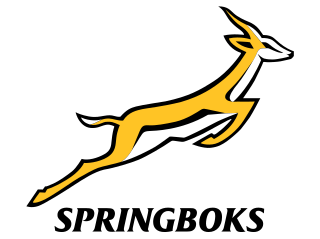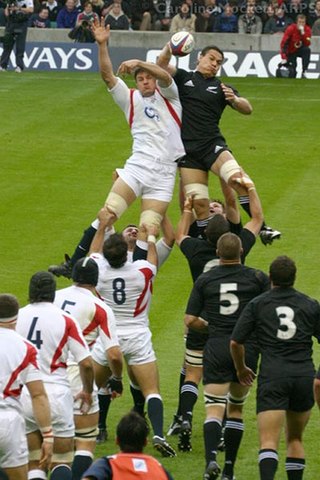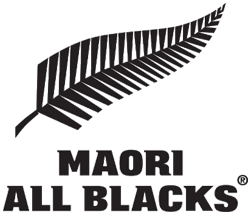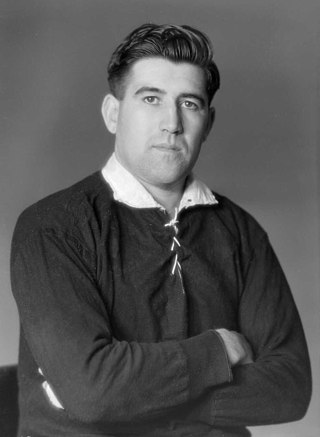
The British & Irish Lions is a rugby union team selected from players eligible for the national teams of England, Ireland, Scotland, and Wales. The Lions are a test side and most often select players who have already played for their national team, although they can pick uncapped players who are eligible for any of the four unions. The team tours every four years, with these rotating between Australia, New Zealand and South Africa in order. The most recent test series, the 2021 series against South Africa, was won 2–1 by South Africa.

The New Zealand national rugby union team, commonly known as the All Blacks, represents New Zealand in men's international rugby union, which is considered the country's national sport. Famed for their international success, the All Blacks have often been regarded as one of the most successful sports teams in history.

The South Africa national rugby union team, commonly known as the Springboks, is the country's national team governed by the South African Rugby Union. The Springboks play in green and gold jerseys with white shorts, and their emblem is the Springbok, a native antelope and the national animal of South Africa. The team has represented South African Rugby Union in international rugby union since 30 July 1891, when they played their first test match against a British Isles touring team. Currently, the Springboks are the top-ranked rugby team in the world and reigning World Champions, having won the World Cup a record four times. South Africa have won half of the Rugby World Cups they have participated in and are also the second nation to win the World Cup consecutively.

The Australia men's national rugby union team, nicknamed the Wallabies, is the representative men's national team in the sport of rugby union for the nation of Australia. The team first played at Sydney in 1899, winning their first test match against the touring British Isles team.

The Fiji national rugby union team represents Fiji in men's international rugby union. Fiji competed in the Pacific Tri-Nations and now competes in its successor tournament Pacific Nations Cup. Fiji also regularly plays test matches during the June and November test windows. They have beaten the major rugby playing sides of Wales, Scotland, Australia, France, Italy, Argentina and England. The only major sides Fiji are yet to beat are New Zealand, South Africa and Ireland.

Rugby union has been played in New Zealand since 1870 and is the most popular sport in the country as well as being its national sport.

The Māori All Blacks, previously called the New Zealand Maori, New Zealand Maoris and New Zealand Natives, are a rugby union team from New Zealand. They are a representative team of the New Zealand Rugby Union, and a prerequisite for playing is that the player has Māori whakapapa (genealogy). In the past this rule was not strictly applied; non–Māori players who looked Māori were often selected in the team. These included a few Pacific island players and a couple of African descent. Today all players have their ancestry verified before selection in the team.
In 1977 the British Lions rugby union team toured New Zealand. The Lions played 26 matches, including four internationals against the All Blacks. They lost the series against the All Blacks by three matches to one. The team played as the British Isles in their internationals against the All Blacks and the British Lions for the non-international games. Unlike all previous tours to New Zealand, the Lions did not play any matches in Australia, though one game was also played at Buckhurst Park, Suva, against Fiji.

Vincent David Bevan was a New Zealand rugby union player.
1949 saw the second full tour of South Africa by a representative New Zealand rugby union team. The All Blacks achieved a record of 13 wins, 7 losses and 4 draws, and they lost the test series 4–0.
Colin "Col" Windon, was a rugby union player and soldier who captained Australia – the Wallabies – in two Test matches in 1951. By age 18 Windon was playing at flanker for his club Randwick in Sydney's Shute Shield. After serving with the Second Australian Imperial Force in the Pacific Theatre during the Second World War, Windon resumed his rugby career in 1946. He was first selected for Australia for their tour of New Zealand that year. Despite the Wallabies losing both their Tests on tour, Windon impressed with his play.

The first clash in Rugby Union between Australia and New Zealand took place in a test match on 15 August 1903 in Sydney, New South Wales. On that occasion, New Zealand won 22–3.

The 1921 South Africa rugby union tour of Australia and New Zealand was the third tour made by the Springboks rugby team, and their first tour to Australia and New Zealand. South Africa played three Test matches against the All Blacks. The series was drawn 1–all, and the long-running controversy between the countries over the All Blacks' inclusion of Maori players began.

John Burns Smith was a New Zealand rugby union player, soldier, sportsman and baker. He was an All Black captain, and despite only playing nine matches is recognised as a great. His 26 appearances for the Second New Zealand Expeditionary Force rugby team, which toured the UK in 1946–47, earned him high praise. He also played for the New Zealand Māori, being of Ngāpuhi descent.
The 1936 Australia rugby union tour of New Zealand was a series of rugby union matches undertaken by the Australia team in New Zealand against invitational and national teams of New Zealand.
The 1982 Australia rugby union tour of New Zealand was a series of fourteen matches played by the Australia national rugby union team in New Zealand between July and September 1982. The Wallabies won ten of the fourteen matches and lost the other four. The international match series against the New Zealand national rugby union team resulted in a 2–1 win for New Zealand, who won the first and third matches, with Australia winning the second match. New Zealand thereby regained the Bledisloe Cup, which had been held by Australia since 1979.

Keith Davis was a New Zealand rugby union player who played for both New Zealand and New Zealand Māori. He played for Auckland, and won the Ranfurly Shield in his first ever provincial game. After gaining All Blacks selection in 1952, Davis toured with the team to Europe and North America in 1953–54. He played extensively for New Zealand Māori between 1952 and his retirement in 1959; his time with the team included matches against both South Africa and the British Lions. Davis was awarded the Tom French Cup for Māori player of the year in 1952, 1953 and 1954.

Rugby union and apartheid had a complex and supportive relationship. From 1948 to 1994, international rugby relations with the country, and also the non-integrated nature of rugby within South Africa drew frequent controversy. South Africa remained a member of the International Rugby Board (IRB) throughout the apartheid era.
The History of the South Africa national rugby union team dates back to 1891, when the British Lions first toured South Africa where they played against South African representative sides. The South Africa national rugby union team played few international matches during a period of international sanctions due to apartheid. Since the end of apartheid in 1994, South Africa has once again fully participated in international rugby.

In 1949, Rhodesia played a rugby union match against New Zealand as a part of the 1949 New Zealand rugby union tour of South Africa. The match was played on 27 July 1949 at Hartsfield Rugby Ground in Bulawayo, Southern Rhodesia. The final result was Rhodesia 10–8 New Zealand. As of 2019, this is the only time the All Blacks have been beaten by a non-Test nation and makes Rhodesia one of only eight countries to have won against the All Blacks.













